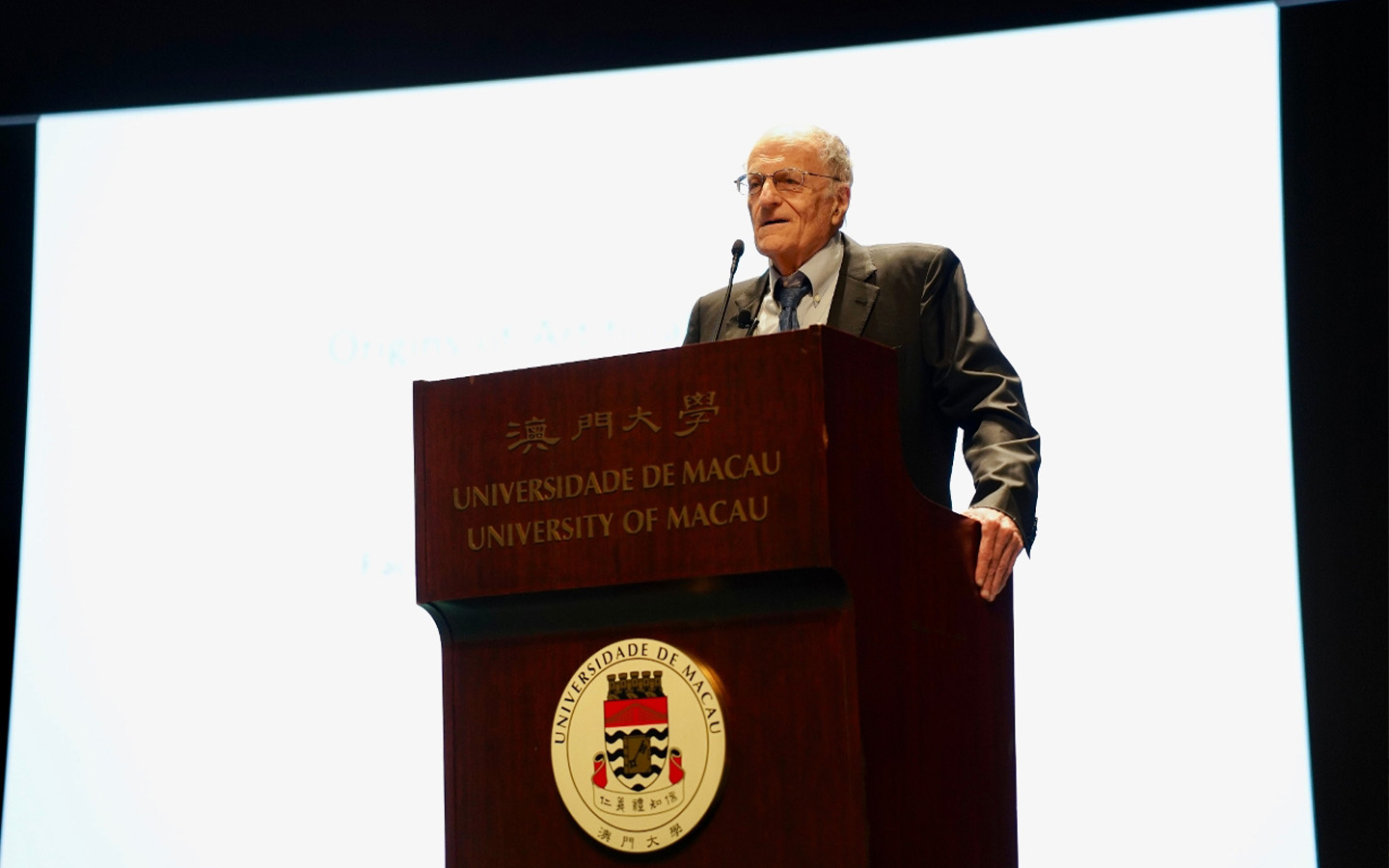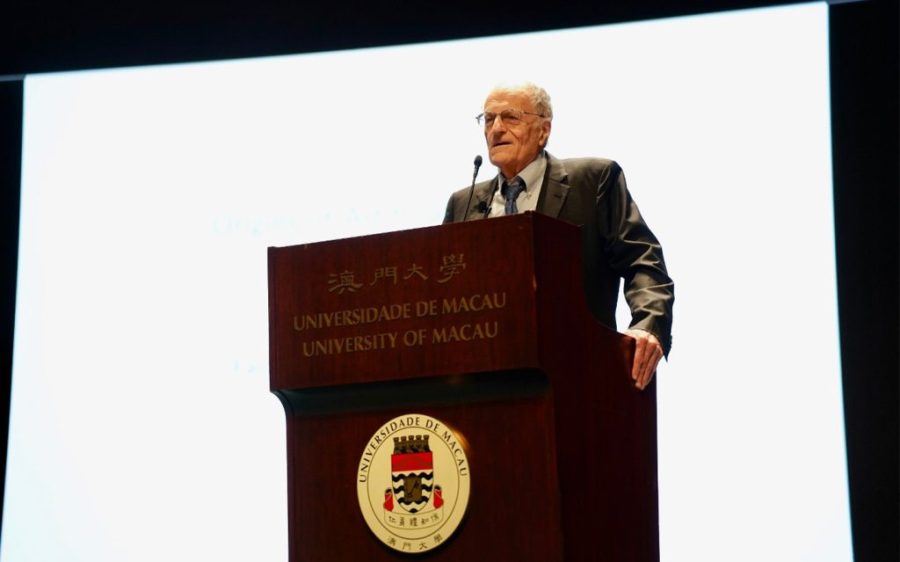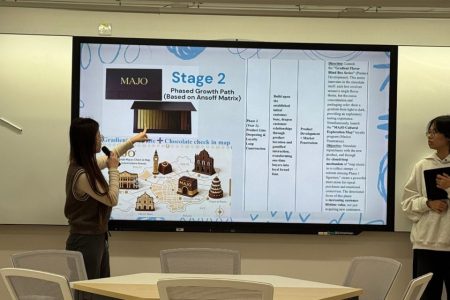The American economist and Nobel laureate Thomas Sargent gave a lecture on the origins of artificial intelligence (AI) at the University of Macau (UM) on Wednesday, offering UM students and faculty as well as members of the public the chance to better understand this fast-evolving and transformative technology.
Dean of UM’s Faculty of Business Administration Yu Jun said that Sargent gave his audience valuable insights into the future of AI research, noting that Macao would be able to benefit from data-driven advancements in the sector.
According to a statement from UM, the 81-year-old professor covered many aspects of AI, including some of the challenges it poses for society and the impact it is having on specific industries. Sargent discussed the technology’s developmental trajectory and the critical roles statistics, biology, economics and physics have played in its development.
[See more: The University of Macau climbs up the World University Rankings again]
Sargent also spoke about human intelligence, covering pattern recognition, decision-making processes and compassion for others, UM said.
At the event, UM rector Yonghua Song introduced Sargent as a trail-blazing economist whose theories – such as the rational expectations model and the freshwater economics movement – have had a profound influence on economic behaviour and policy-making. The rational expectations model concerns individuals’ understanding of government policies, and how their resulting behaviour can stymie a policy’s intended effect. Freshwater economics, meanwhile, is the idea that an economy should be based on free market forces.
Sargent was awarded the 2011 Nobel Prize for Economics for his empirical research on cause and effect in the macroeconomy. He is currently a professor of economics and business at New York University, an honorary professor at Peking University, and the honorary director of the Sargent Institute of Quantitative Economics and Finance at the Peking University HSBC Business School.






